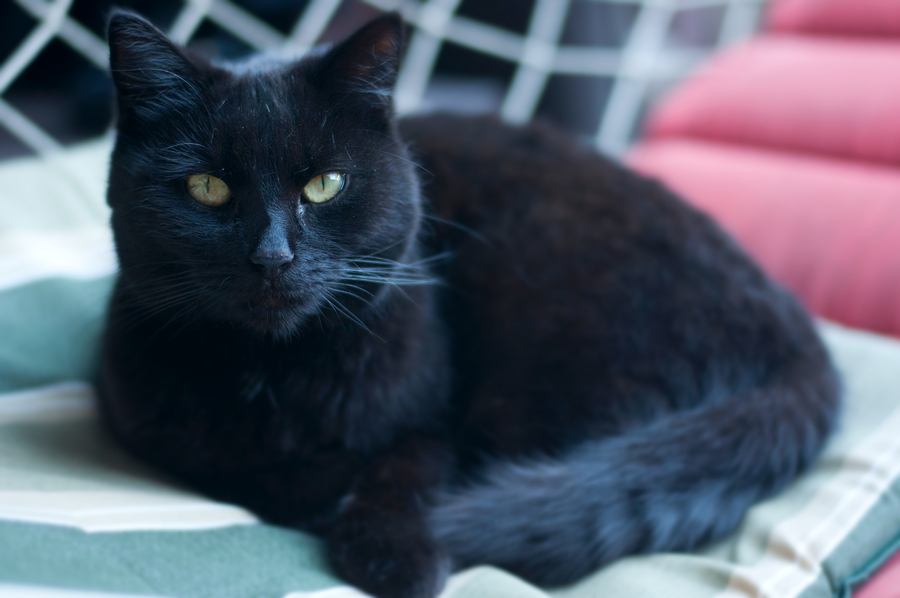While your first reaction when your cat stops using the litter box reliably should be to see the vet about a possible urinary tract infection, there are other reasons for this problem. In older cats, that can be caused by vision loss or cognitive decline. Here’s my advice to a reader whose senior cat is no longer using the litter box at night.
Q: We have a 16-year-old female cat who has always been neat about using her cat box, but now she won’t pee in it. She spends most of the day in our fenced backyard, and she has a litter box in our laundry room for when she’s in at night. Every morning we have to clean a puddle of pee next to her litter box.
We have tried different cat litters, including clumping and non-clumping; we put out two litter boxes, each with a different type of litter; we’ve moved the boxes to different locations in the laundry room; we clean the litter boxes daily, so they are always clean. Our vet suggested that it’s a bit of cat dementia rather than anything physical. Do you have any thoughts on why she is doing this and what we can do about it? We love our cat, but we are tired of cleaning the laundry room floor every morning.
A: I assume your cat is able to get into the litter box without any problem if she is defecating inside it. If she is having this issue only at night, maybe she has developed vision problems and is having trouble finding the box to get into it. Can you leave on a night light or other light? You may also want to set down pee pads next to the litter box for easier cleanup.
As your veterinarian mentioned, cats can lose housetraining if they are experiencing cognitive decline. You may want to ask about a drug called selegiline (Anipryl) that is used in dogs with dementia. It is not labeled for use in cats, but some veterinarians prescribe it off label. It has a similar success rate in cats as it does in dogs: Approximately one-third benefit from it, one-third see slighter improvement, and one-third experience no change.
Read more in Pet Connection, the weekly nationally syndicated pet feature I co-write with Kim Campbell Thornton and my daughter, trainer Mikkel Becker.


